HUMAN RIGHTS
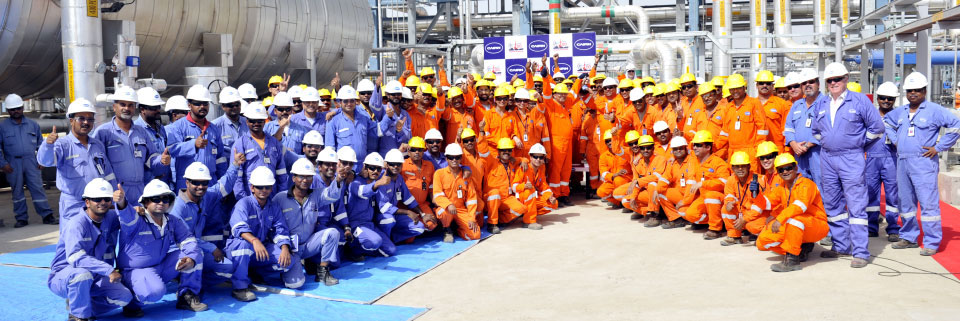

For us, upholding Human Rights is a fundamental responsibility, and it ranks high on our priority list. With majority of our operations in developing countries, we are aware of its importance and have thus made it a material aspect across all our business decisions.
OUR HUMAN RIGHTS POLICY IS ALIGNED TO THE UNITED NATIONS GUIDING PRINCIPLES ON BUSINESS AND HUMAN RIGHTS, AND INCLUDES STRICT PROHIBITION OF ANY FORM OF COERCED LABOUR - EITHER DIRECTLY OR THROUGH CONTRACT LABOUR.
Additionally, our Code of Business Conduct and Ethics (Code) ensures that we comply with all relevant national laws and regulations, thereby underpinning our approach to protect the fundamental rights of all our direct and indirect employees, communities and immediate supply chain.
| Direct & Indirect Workforce |
 |
We maintain a cordial and constructive relation with all employees and labour unions. There is zero room for human rights violations at our operations and any case of non-compliance is severely dealt with. We have robust mechanisms like employee grievance processes, collective bargaining and contract labour management cells at all our operations.
Collective Bargaining
We uphold our workers' right to freedom of association at all our operations. The collective bargaining agreements are negotiated and agreed by the management and union representatives. The agreements include clauses relating to remuneration, allowances, working conditions, incentives and bonuses, health and safety, manpower productivity etc. We aim to ensure that compensation for workers meets or exceeds the legal requirements.
Collective bargaining also gives us the opportunity to create a better and more productive work environment in terms of health and safety, working conditions, remuneration, allowances, incentives and bonuses.
WE HAVE A COLLECTIVE BARGAINING MECHANISM AT OUR VARIOUS OPERATIONS AND THE PERCENTAGE OF WORKFORCE COVERED BY THE MECHANISM INCLUDE:



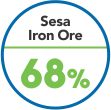
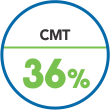


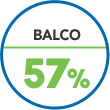
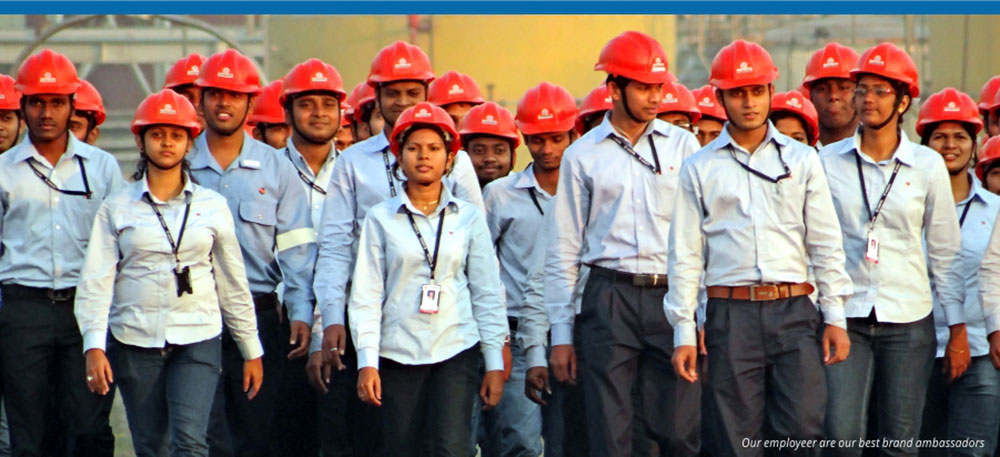
For locations that do not have collective bargaining agreements, we have adequate systems and processes in place for employee consultation, appraisal, grievance redressal and development. We also have a mechanism to make the employees aware of any significant operational changes like restructuring, mergers and acquisitions, expansions, etc. Notification periods for significant operational changes are indicated in collective bargaining agreements and certified standing orders of respective entities. For example, in India the notification period is 21 days, 30 days for Namibia and South Africa, while in Zambia the minimum notice period is one year.
Supplier Diligence
We encourage suppliers to adopt principles and practices comparable to our own. Our significant suppliers and contractors generally include well-reputed and well-governed organisations, with robust human rights and fair practice mechanisms. We continue to ensure due diligence by conducting inductions, screenings, inspections and audits on a case to case basis. Any concerns raised by interested parties on any of our key suppliers is promptly addressed by undertaking an independent assessment.
AT STERLITE COPPER, WE USE A FOOL-PROOF RADIOLOGICAL AGE IDENTIFICATION PROCESS TO ASSESS CHILD LABOUR VIOLATIONS.
The Suppliers' Code of Conduct is implemented as part of the terms and conditions of supplier contracts across the Group and all new suppliers are required to sign, endorse, and practice this Code. At Vedanta, we have a Supplier & Contractor Sustainability Management Policy. Both the Code as well as the Policy clearly communicate our expectations from our suppliers: to operate in compliance with all relevant legislations and follow our policies while executing work for or on behalf of Vedanta.
The Supplier and Contractor Technical Standard further includes a Supplier Screening Checklist to evaluate contractor compliance relating to key issues, e.g. legal compliance, HSE management, labour management, human rights and child labour. This checklist is used by operations to screen suppliers and contractors as part of a prequalification process prior to awarding work.
At the time of engaging new suppliers, the contract mandates the supplier to abide by the law of the land and ensure that there is no violation of labour laws. In addition, checks at various levels are also carried out to ensure the adherence to labour practices.
Ensuring right age for the right job
At Vedanta, we take utmost care to ensure that our workforce, be it executives or contract labour are adults and willing to work. We have proper systems in place to strictly address child labour and coerced labour across all our operations. Apart from this, we carry out periodic inspections at our remote mine locations, where proof of age is mandatory for all contract workers. Our Suppliers' Code of Conduct stipulates that all our suppliers also commit to the same norms.
MODERN SLAVERY ACT 2015
The UK Parliament constituted the Modern Slavery Act (MSA) to tackle the issues of slavery and human trafficking. The law helps to enhance investor, employee and consumer confidence and trust in an organisation by building a foundation of strong ethical standards.
Last year, we had proposed a number of steps through which we are incorporating the Modern Slavery Act 2015 in our operations. Implementation of the compliance framework for MSA has been a prime focus area for our sustainability committee this reporting period.
Based on our assessment, we identified close to 145 suppliers under the Very High and High Risk categories w.r.t. MSA compliance. Out of these 145, we terminated our association with 17 suppliers with immediate effect.
Of the remaining 128 suppliers, 117 were identified for audit in the audit cycle of the current financial year. They were subjected to an independent MSA audit by M/s PwC. The site visit for the audit team involved initial awareness sessions for relevant people on key MSA provisions, verification of documents/records, and interviews.
Audit findings are shared with commercial departments of individual businesses which are directed to incorporate recommended changes and handhold vendors to meet compliance. Commercial processes and procedures of vendor selection and engagement will be reviewed going forward in view of findings of the audit to resolve systemic issues.
Under the current framework implementation, we have put in place a system for training of vendors/ suppliers, due diligence, and self-declaration.
Our Supplier Code of Conduct and Contract Conditions was also updated with a provision on compliance to MSA.
| Local Communities |
 |
We operate in diverse geographies and our respect for the norms, culture, and heritage of local communities remains strong as ever. We have developed a number of standards and abide by them.
This includes the Cultural Heritage Standard, Land & Resettlement Management Standard, and Indigenous People and Vulnerable Tribal Groups Standard that have been developed in alignment with international practices including ICMM guidelines and IFC standards.
Indigenous Peoples and Vulnerable Tribal Groups (IPs/VTGs)
The Group's standards and guidance note on IPs & VTGs were rolled out to support the implementation of our Human Rights Policy.
The core aim of the standard is to enable our project teams to engage, negotiate, and partner with the vulnerable groups in a manner that avoids negative impacts and risks for all stakeholders, especially the indigenous peoples and vulnerable tribes.
Our standards provide special provisions for stakeholder engagement with marginalised groups, indigenous peoples, and vulnerable tribal groups. To safeguard their rights, we follow the principle of Good Faith Negotiation (GFN), Informed Consultation and Participation (ICP) and/or Free, Prior and Informed Consent (FPIC).
Land Acquisition and Resettlement
Prior to 2010, to secure long-term bauxite supply for our Lanjigarh Alumina Refinery, we had signed a Memorandum of Understanding (MoU) with the Government of Odisha, India. As part of this MoU, the Government of Odisha agreed that the Odisha Mining Corporation (OMC), a government-owned enterprise, would provide 150 million tonnes of bauxite for our processing facility. The Supreme Court of India approved this bauxite mining project in 2008.
However, the Ministry of Environment and Forest (MoEF) subsequently declined the request for final clearance, following concerns voiced by local communities, including several tribal villages (IPs) near Niyamgiri. Consequently, OMC could not commence mining.
In accordance with the Company values, we responded with numerous public communications reassuring the affected communities that we would not consider bauxite mining at Niyamgiri without expressed invitation and Free Prior and Informed Consent (FPIC) of local communities. Bauxite is abundantly available in other parts of Odisha and we continue our engagement with the State Government to secure alternative supplies to support the ramping-up of our Lanjigarh Refinery.
Security Practices
We have Code of Conduct policy in place which educates our employees on human rights aspects. This year we provided 375,373 man-hours of employee training on various programmes on Code of Conduct & human rights. The employees who received this training range from our on-site security guards to our transport workforce, wherein we have previously identified some risks of child labour.
We emphasise that none of our operational procedures violates the human rights of any individual. Based on our curriculum and the module that is being followed by all Vedanta units, we have been laying a tremendous stress on human rights training of security personnel.
The total coverage in terms of training is 78.9% with regards to contractors and regular employees. It is worth noting that across the Group, we generally work with private and professional security companies (rather than local security forces or military). Our security personnel are not typically armed and we have not experienced significant human rights abuses involving our security personnel.

